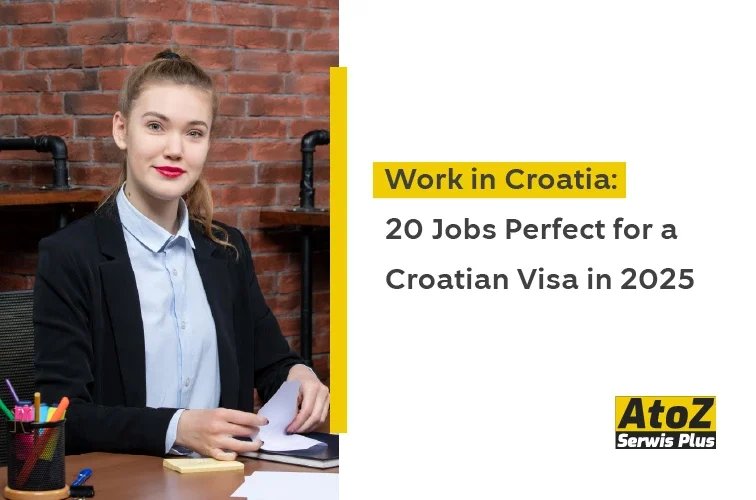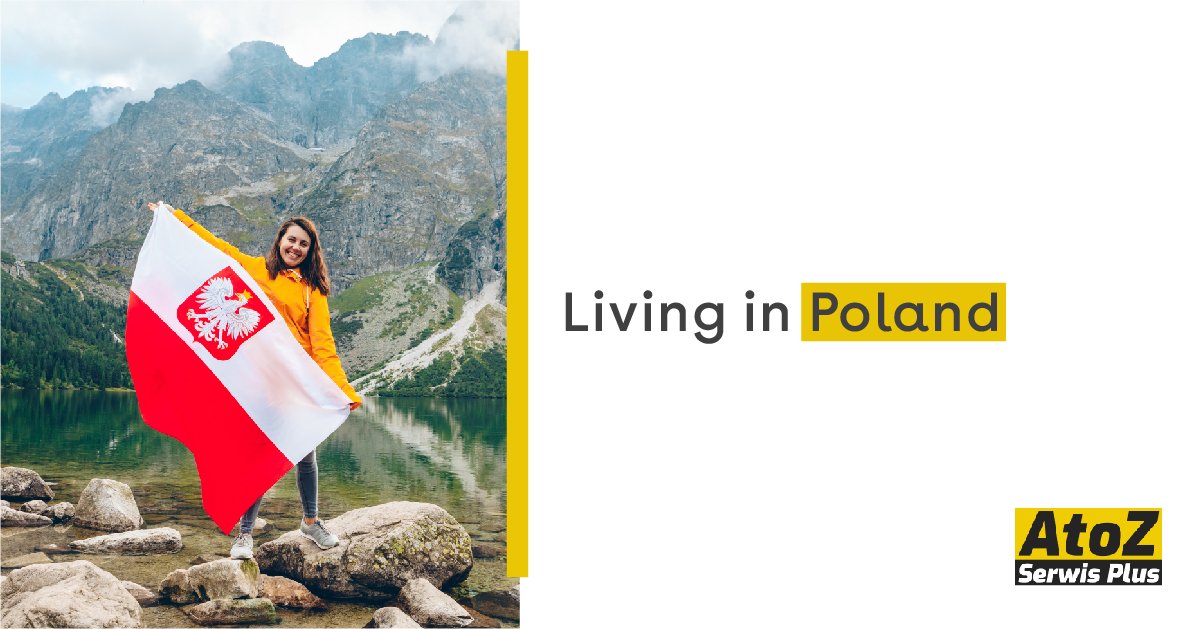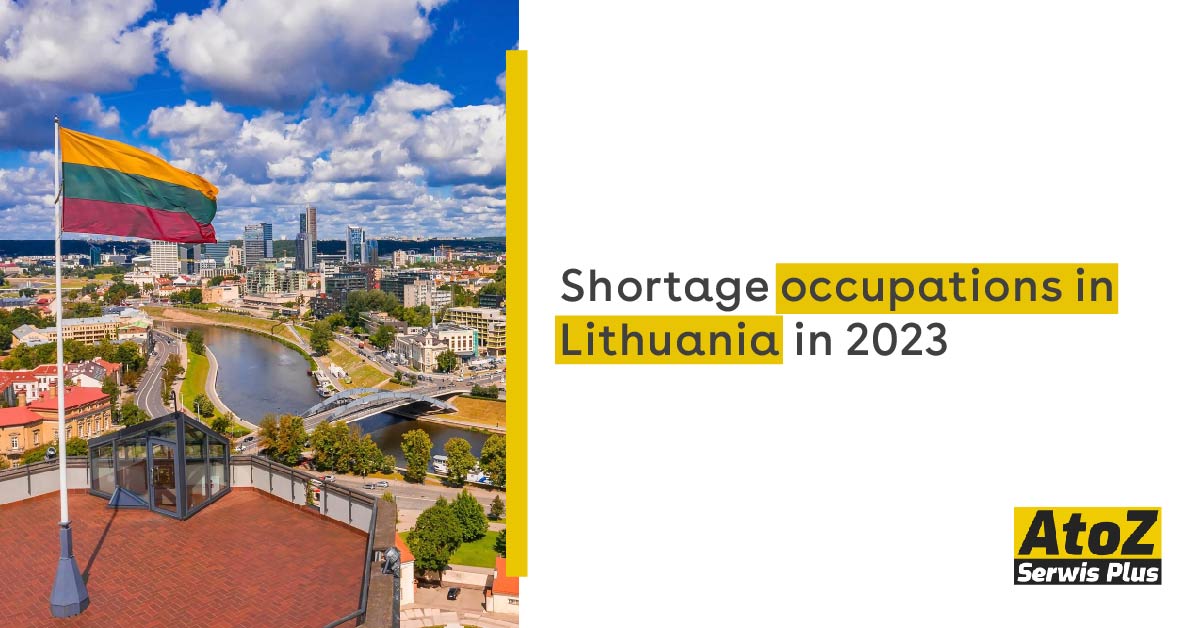

Work in Croatia: 20 Jobs Perfect for a Croatian Visa in 2025
Dreaming of crystal-clear waters, ancient walled cities, and a laid-back Mediterranean lifestyle? Croatia might be your next career move! But before you start packing your bags, there's one crucial question to answer: What jobs can get you there?
Croatia is set to become an even more attractive destination for international professionals in 2025. With its booming tourism industry, growing tech scene, and increasing demand for skilled workers, the country is opening its doors to foreign talent more expensive than ever. However, navigating the Croatian job market and visa process can feel like solving a complex puzzle.
Don't worry – we've got you covered! This comprehensive guide will explore 20 in-demand jobs perfect for securing a Croatian visa in 2025. From seaside hospitality gigs to cutting-edge tech roles, we'll dive into the opportunities that await you in this stunning Adriatic gem. So, whether you're a digital nomad, a seasonal worker, or looking for a complete career change, let's uncover the key to your Croatian adventure!
Understanding Croatian Work Visas
Types of work visas available
Croatia offers several types of work visas for foreigners, each catering to different employment scenarios:
- Regular Work Permit
- EU Blue Card
- Seasonal Work Visa
- Digital Nomad Visa
|
Visa Type |
Duration |
Key Features |
|---|---|---|
|
Regular Work Permit |
Up to 1 year |
For general employment |
|
EU Blue Card |
Up to 2 years |
For highly skilled professionals |
|
Seasonal Work Visa |
Up to 6 months |
For temporary seasonal jobs |
|
Digital Nomad Visa |
Up to 1 year |
For remote workers |
Eligibility criteria for different visas
The eligibility criteria vary depending on the type of work visa:
- Regular Work Permit: Valid job offer, qualifications for the position
- EU Blue Card: Higher education degree, high-paying job offer
- Seasonal Work Visa: Temporary contract in seasonal industries
- Digital Nomad Visa: Proof of remote work, sufficient income
Application process and required documents
The application process typically involves:
- Securing a job offer from a Croatian employer
- Gathering required documents (passport, CV, qualifications, etc.)
- Submitting application to Croatian embassy or consulate
- Attending an interview (if required)
- Waiting for visa approval
Visa duration and renewal options
Work visas in Croatia generally have the following durations and renewal options:
- Regular Work Permit: 1 year, renewable
- EU Blue Card: 2 years, renewable
- Seasonal Work Visa: Up to 6 months, non-renewable within the same year
- Digital Nomad Visa: 1 year, can reapply after 6 months outside Croatia
Now that we've covered the basics of Croatian work visas, let's explore the top industries for foreign workers in Croatia.
Top Industries for Foreign Workers in Croatia
A. Tourism and hospitality
Croatia's stunning coastline and rich cultural heritage make tourism a cornerstone of its economy. In 2025, the industry is expected to offer numerous opportunities for foreign workers, particularly in:
- Hotel management
- Tour guiding
- Restaurant services
- Event planning
Seasonal peaks during summer months create a high demand for temporary workers, ideal for those seeking short-term employment.
B. Information technology
The IT sector in Croatia is rapidly expanding, attracting both local and international talent. Key areas include:
- Software development
- Cybersecurity
- Data analysis
- AI and machine learning
Many IT companies in Croatia offer competitive salaries and the possibility of remote work, making it an attractive option for digital nomads.
C. Manufacturing and engineering
Croatia's manufacturing sector is diverse, with opportunities in:
- Automotive industry
- Shipbuilding
- Aerospace engineering
- Renewable energy technologies
|
Industry |
Key Skills |
Growth Potential |
|---|---|---|
|
Automotive |
Mechanical engineering, robotics |
High |
|
Shipbuilding |
Naval architecture, welding |
Moderate |
|
Aerospace |
Aeronautical engineering, CAD |
High |
|
Renewable Energy |
Electrical engineering, sustainability |
Very High |
D. Education and language teaching
With Croatia's growing international community, there's a rising demand for:
- English language teachers
- International school educators
- University lecturers in various fields
E. Healthcare and medical services
Croatia's healthcare system offers opportunities for:
- Doctors in various specialties
- Nurses
- Medical researchers
- Healthcare administrators
The aging population in Croatia is likely to increase demand for healthcare professionals in the coming years.
In-Demand Jobs for Foreigners in 2025
Hotel and Resort Management
As Croatia's tourism industry continues to flourish, hotel and resort management positions are becoming increasingly sought-after. These roles offer exciting opportunities for foreigners with experience in hospitality and a passion for delivering exceptional guest experiences.
Key Responsibilities:
- Overseeing daily operations
- Managing staff and budgets
- Implementing marketing strategies
- Ensuring guest satisfaction
|
Skill |
Importance |
|---|---|
|
Leadership |
High |
|
Customer Service |
Critical |
|
Financial Management |
Essential |
|
Multilingual |
Preferred |
Software Development and Cybersecurity
With Croatia's growing tech sector, software developers and cybersecurity experts are in high demand. These roles offer competitive salaries and opportunities to work on cutting-edge projects.
In-Demand Skills:
- Full-stack development
- Cloud computing
- AI and machine learning
- Penetration testing
- Network security
Renewable Energy Specialists
As Croatia invests in sustainable energy, specialists in renewable technologies are becoming increasingly valuable. These roles combine technical expertise with environmental consciousness.
English Language Teachers
The demand for English language instruction remains strong in Croatia, with opportunities in:
- Private language schools
- International schools
- Corporate training programs
- Online teaching platforms
Digital Marketing Experts
As Croatian businesses expand their online presence, digital marketing experts are crucial for driving growth and engagement.
Key Areas of Expertise:
- SEO and SEM
- Social media management
- Content marketing
- Data analytics
- E-commerce optimization
These in-demand jobs offer exciting prospects for foreigners looking to work in Croatia in 2025. Next, we'll explore some high-paying opportunities that await skilled professionals in the country.
High-Paying Opportunities in Croatia
Senior-level executive positions
Croatia's growing economy offers lucrative opportunities for experienced executives. Multinational companies and local enterprises seek top-tier talent to lead their operations. These positions often come with competitive salaries, performance bonuses, and comprehensive benefits packages.
|
Position |
Average Annual Salary (EUR) |
|---|---|
|
CEO |
120,000 - 200,000 |
|
CFO |
90,000 - 150,000 |
|
COO |
85,000 - 140,000 |
Specialized medical professionals
The healthcare sector in Croatia is experiencing a shortage of specialized medical professionals. This creates excellent opportunities for foreign doctors and specialists.
- Neurosurgeons
- Oncologists
- Cardiologists
- Anesthesiologists
These roles typically offer salaries ranging from 70,000 to 120,000 EUR per year, depending on experience and specialization.
Financial analysts and consultants
As Croatia's financial sector continues to grow, the demand for skilled financial professionals is on the rise. International banks and consulting firms are particularly interested in hiring experienced analysts and consultants.
Experienced project managers
With Croatia's booming tourism and technology sectors, project managers are in high demand. Those with experience in IT, construction, or hospitality can expect competitive salaries ranging from 50,000 to 80,000 EUR annually.
Now that we've explored these high-paying opportunities, let's look at some seasonal work options for those seeking shorter-term employment in Croatia.
Seasonal Work Options
Summer tourism jobs
Croatia's stunning coastline and islands make it a prime destination for summer tourism. This sector offers numerous seasonal job opportunities for foreigners. Here are some popular positions:
- Tour guides
- Hotel staff
- Restaurant workers
- Beach club attendants
- Yacht crew members
|
Job Type |
Typical Duration |
Language Requirements |
|---|---|---|
|
Tour Guide |
May - September |
Fluent English, Croatian beneficial |
|
Hotel Staff |
April - October |
Basic English, other languages a plus |
|
Restaurant Worker |
June - August |
Basic English or Croatian |
|
Yacht Crew |
May - September |
Fluent English, other languages beneficial |
Agricultural and harvest work
Croatia's agricultural sector provides seasonal work opportunities, particularly during harvest seasons. These jobs are ideal for those seeking short-term employment and outdoor work:
- Fruit picking (olives, grapes, figs)
- Vineyard maintenance
- Lavender harvesting
- Truffle hunting assistants
Winter sports and ski resort positions
While less known than its coastal attractions, Croatia's mountainous regions offer winter sport opportunities. Ski resorts like Sljeme near Zagreb and Platak near Rijeka hire seasonal workers for various roles:
- Ski instructors
- Lift operators
- Resort staff
- Equipment rental assistants
These seasonal options provide excellent opportunities for foreigners to experience Croatian culture while earning income. Next, we'll explore the growing remote work possibilities in Croatia, which offer more flexibility and year-round options for international workers.
Remote Work Possibilities
Digital nomad visa requirements
Croatia's digital nomad visa has become increasingly popular, offering remote workers the opportunity to live and work in this beautiful country. To obtain this visa, applicants must meet specific criteria:
- Proof of remote work status or self-employment
- Minimum monthly income of €2,500
- Health insurance coverage
- Clean criminal record
- Valid passport
|
Requirement |
Details |
|---|---|
|
Income |
€2,500/month minimum |
|
Visa Duration |
Up to 1 year |
|
Application Fee |
Approximately €60 |
|
Processing Time |
2-4 weeks |
Co-working spaces and infrastructure
Croatia has embraced the digital nomad lifestyle, with many cities offering excellent co-working spaces and robust digital infrastructure:
- High-speed internet widely available
- Modern, well-equipped co-working spaces
- Affordable membership plans
- Networking opportunities with local and international professionals
Popular Croatian cities for remote workers
Several Croatian cities have become hotspots for remote workers, each offering unique advantages:
- Zagreb: The capital city with a vibrant startup scene
- Split: Coastal living with a perfect work-life balance
- Dubrovnik: Historic charm and stunning Adriatic views
- Zadar: Affordable living and beautiful beaches
Now that we've explored remote work possibilities in Croatia, let's consider the language requirements for different jobs in the country.
Language Requirements for Different Jobs
Croatian language proficiency levels
When considering work in Croatia, understanding the language requirements is crucial. Croatian language proficiency is often categorized into levels:
- A1-A2: Basic communication
- B1-B2: Intermediate to advanced
- C1-C2: Near-native fluency
|
Proficiency Level |
Job Types |
Examples |
|---|---|---|
|
A1-A2 |
Entry-level, tourism |
Waiter, hotel staff |
|
B1-B2 |
Mid-level, customer service |
Sales representative, office admin |
|
C1-C2 |
Professional, specialized |
Lawyer, doctor, teacher |
English-speaking job opportunities
Despite Croatian being the official language, many jobs cater to English speakers:
- IT and tech roles
- International business positions
- Academic research
- Tourism and hospitality management
Multilingual positions in international companies
Croatia's growing international business sector offers opportunities for multilingual professionals:
- Customer support representatives
- Marketing specialists
- Business development managers
- Human resources coordinators
These roles often require fluency in Croatian and English, with additional languages being a significant advantage. As Croatia continues to attract foreign investment, the demand for multilingual talent is expected to rise, creating diverse career paths for international job seekers in 2025.
Benefits of Working in Croatia
Work-life Balance and Leisure Opportunities
Croatia offers an enviable work-life balance, with ample opportunities for leisure and relaxation. The country's labor laws ensure a standard 40-hour workweek, with generous annual leave allowances. This balance allows workers to explore Croatia's stunning coastline, national parks, and historical sites during their free time.
|
Aspect |
Details |
|---|---|
|
Working Hours |
40 hours per week |
|
Annual Leave |
Minimum 20 days |
|
Public Holidays |
14 days |
Healthcare and Social Security Benefits
Croatia provides comprehensive healthcare and social security benefits to foreign workers. The national healthcare system offers quality medical services at affordable rates. Social security benefits include unemployment insurance, pension contributions, and maternity leave.
Cost of Living Compared to Salary Expectations
- Lower cost of living compared to Western European countries
- Affordable housing, especially outside major cities
- Competitive salaries in high-demand sectors
- Potential for savings and a comfortable lifestyle
Cultural Experiences and Quality of Life
Working in Croatia offers unique cultural experiences and a high quality of life. The country's rich history, diverse cuisine, and welcoming locals create an enriching environment for foreign workers. The Mediterranean lifestyle, coupled with modern amenities, contributes to overall well-being and satisfaction.
With these benefits in mind, let's explore some practical tips for job hunting in Croatia to help you secure your ideal position.
Tips for Job Hunting in Croatia
Popular job search websites and resources
When searching for jobs in Croatia, it's essential to utilize popular job search websites and resources. Here are some top platforms to consider:
- MojPosao.hr
- Posao.hr
- EURES (European Job Mobility Portal)
- Expat.com (Croatia section)
These platforms offer a wide range of job listings across various industries, making them valuable resources for foreigners seeking employment in Croatia.
Networking opportunities and professional events
Networking plays a crucial role in the Croatian job market. Attend professional events and join industry-specific groups to expand your connections:
- Croatian Chamber of Economy events
- Meetup.com groups in major cities
- Industry conferences and trade shows
- Expatriate communities and forums
Working with Croatian recruitment agencies
Partnering with recruitment agencies can significantly enhance your job search efforts. Some reputable agencies include:
|
Agency Name |
Specializations |
|---|---|
|
Adecco Croatia |
Various industries |
|
Manpower Croatia |
IT, engineering, finance |
|
Selectio |
Executive and management roles |
Tailoring your resume for the Croatian job market
To increase your chances of success, adapt your resume to Croatian standards:
- Include a professional photo
- Use a concise format (1-2 pages)
- Highlight relevant skills and experiences
- Translate your resume into Croatian, if possible
- Include language proficiency levels
Remember to emphasize any international experience and cross-cultural skills, as these can be valuable assets in the Croatian job market.
Legal Considerations for Foreign Workers
Croatian labor laws and worker rights
Croatia's labor laws provide robust protection for both domestic and foreign workers. Key rights include:
- Minimum wage guarantees
- Regulated working hours (typically 40 hours per week)
- Paid annual leave (at least 4 weeks per year)
- Protection against discrimination
Foreign workers should familiarize themselves with these rights to ensure fair treatment. The Croatian Ministry of Labor offers resources in multiple languages for expatriates.
Tax obligations for expatriates
Navigating tax obligations is crucial for foreign workers in Croatia. Here's a quick overview:
|
Tax Type |
Rate |
Notes |
|---|---|---|
|
Income Tax |
20-30% |
Progressive system based on income |
|
Social Security |
20% |
Shared between employer and employee |
|
VAT |
25% |
Standard rate, lower for some goods |
Expatriates must obtain a Croatian tax ID (OIB) and may be eligible for tax treaties to avoid double taxation with their home country.
Social security and pension contributions
Foreign workers in Croatia are generally required to contribute to the social security system, which includes:
- Pension insurance
- Health insurance
- Unemployment insurance
- Work injury protection
Contributions are typically shared between the employer and employee. It's important to understand how these contributions may affect your future pension rights, both in Croatia and your home country.
Health insurance requirements
Health insurance is mandatory for all foreign workers in Croatia. Options include:
- State health insurance through the Croatian Health Insurance Fund (HZZO)
- Private health insurance from approved providers
EU citizens can use their European Health Insurance Card (EHIC) for temporary stays, but long-term residents must register with the Croatian system. Non-EU nationals must provide proof of comprehensive health coverage when applying for work and residence permits.
Croatia offers a wealth of opportunities for foreign workers seeking to build a career in this beautiful Mediterranean country. From high-demand industries like tourism and IT to seasonal work and remote positions, there's a job to suit various skills and preferences. Understanding the visa requirements, language expectations, and legal considerations is crucial for a successful job hunt and work experience in Croatia.
As you embark on your journey to work in Croatia, remember to leverage the country's growing industries, adapt to local work culture, and embrace the unique lifestyle this Adriatic gem has to offer. Whether you're looking for a short-term adventure or a long-term career move, Croatia's diverse job market and stunning landscapes make it an attractive destination for international professionals in 2025 and beyond.
FQAS
What are the top jobs in Croatia for 2025?
- High-demand jobs include construction workers, healthcare professionals, IT specialists, and welders.
Is a work visa required to work in Croatia?
- Yes, non-EU nationals need a work visa and permit to work legally in Croatia.
How long does it take to get a work visa in Croatia?
- Processing usually takes 30–90 days, depending on the application and required documents.
Can I work in Croatia without knowing Croatian?
- Yes, many jobs, especially in IT and tourism, require only English proficiency.
What is the average salary for foreign workers in Croatia?
- Salaries range from €800 to €2,500 per month, depending on the job and qualifications.
What are the requirements for a Croatian work visa?
- Key documents include a job offer, passport, proof of accommodation, and medical insurance.
Are there seasonal job opportunities in Croatia?
- Yes, seasonal jobs in agriculture, tourism, and hospitality are popular.
Can family members join on a work visa in Croatia?
- Yes, family reunification is possible under certain conditions.
Are Croatian employers willing to sponsor visas for foreign workers?
- Many employers, especially in high-demand industries, provide visa sponsorship.
Is Croatia suitable for blue-collar workers?
- Yes, blue-collar roles like construction, logistics, and manufacturing are in demand.
Are healthcare jobs in demand in Croatia?
- Yes, doctors, nurses, and caregivers are highly sought after.
What is the cost of living in Croatia for foreign workers?
- The average cost is around €800–€1,200 per month, depending on location.
How can I find job opportunities in Croatia?
- Job portals, recruitment agencies, and employer websites are common resources.
Can I change employers while on a Croatian work visa?
- Yes, but you must update your work permit to reflect the new employer.
Do I need a specific qualification for high-demand jobs in Croatia?
- Certain roles, like healthcare and engineering, require formal qualifications or certifications.
Are there part-time job options for foreigners in Croatia?
- Part-time jobs are available, especially in tourism and hospitality.
What industries are growing in Croatia in 2025?
- IT, tourism, construction, and renewable energy sectors are experiencing growth.
Are there visa exemptions for EU nationals working in Croatia?
- Yes, EU citizens do not require work visas but must register with local authorities.
How long can I stay in Croatia on a work visa?
- Work visas are typically valid for the duration of the employment contract, up to 1 year, with renewal options.
What are the key benefits of working in Croatia?
- Benefits include competitive salaries, affordable living costs, and access to EU work and travel opportunities.


















